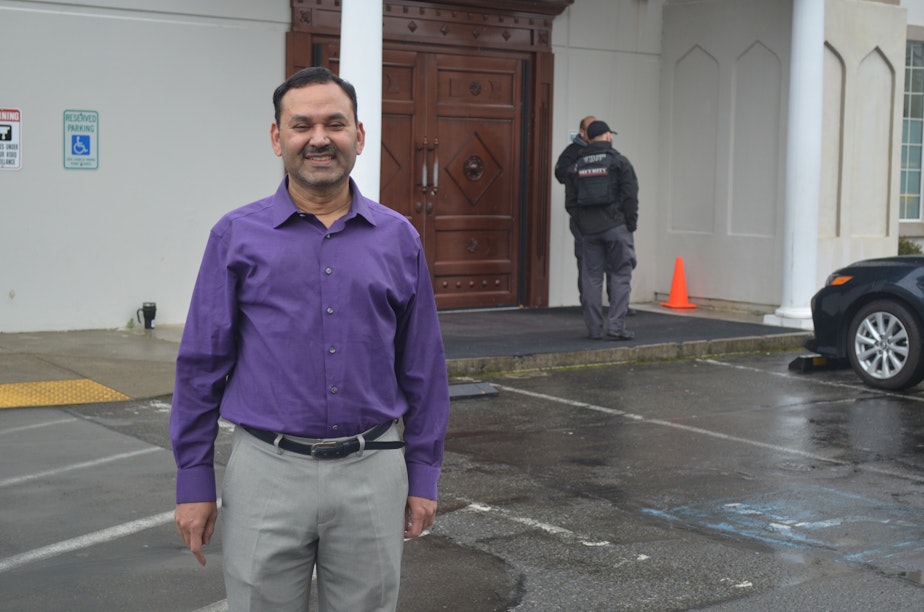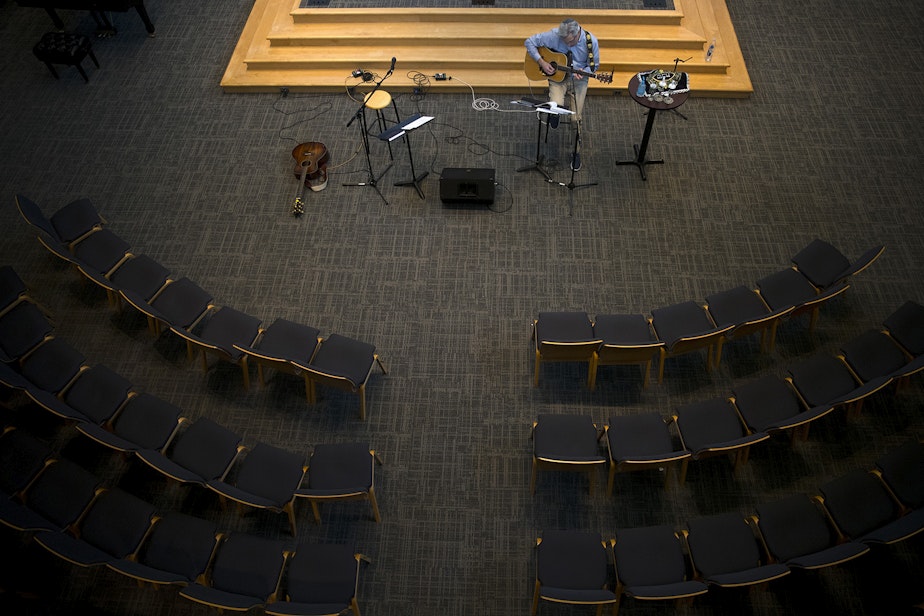'Our faith is most tested': Believers in Seattle area face challenge of coronavirus
At St. Mark’s Episcopal Cathedral on Capitol Hill on Sunday, about 70 people sprinkled the pews for the 9 a.m. service -- a third of the usual turn-out.
They heard the Reverend Christi Chapman try to convey a sense of calm during her sermon.
“Practice being a non-anxious presence to your neighbors and to your family,” she told congregants. “And remember to take note of yourself. Go outside if you can. Smell this fresh spring air that is all around us.”
The outbreak of coronavirus is challenging people of faith around the Seattle area.
Some houses of worship responded by canceling in-person services this weekend. Others tried to adjust how they worshipped.
At St. Mark’s, the Reverend Canon Nancy Ross said the church took a lot of precautions to prevent the spread of the coronavirus.
“We are not sharing the common cup at this time. We are not touching each other at the handshake of peace, which can be very huggy and cordial in our community,” she said.
Instead, congregants bowed and smiled to each other from a distance.
The church also drained the baptismal fonts and removed the shared prayer books from the pews.
Outside on the church steps after the service, parishioner Sandy Nelson said she was “extremely moved.”
“Here we are, feeling vulnerable, but we’re in a place where we feel safe, and where we’re still fed by the holy spirit, despite the fear that’s going on in the world,” she said. “And that’s essential right now for me and my family.”

But other faith leaders made the tough call to cancel services.
At the Muslim Association of Puget Sound, a large mosque in Redmond, president Hyder Ali said this week was the first time he’d ever seen Friday prayers canceled in the 30 years since he moved to the United States.
He said the mosque’s leadership considered both religious and public health guidelines.
“In Islam, the first principle is the sanctity of human life, and there have been religious edicts that say that it is OK to cancel, in the case of an emergency or a crisis,” Ali said.
He said that once King County public health officials advised canceling large gatherings, the mosque decided to do so – because it was impossible to hold services in a way that seemed relatively safe.
“We are the largest center,” he said of the Muslim community in the region. “We have about a thousand people coming. And the nature of our services: We are close proximity to each other for about 30 minutes.”

Other houses of worship also canceled in-person meetings but were able to use technology to pray together.
On Friday, the Rabbi Daniel Weiner and a cantor stood in an empty chapel, transmitting their prayers and songs, not to congregants in the room but to hundreds of worshippers watching over the internet -- more than the number of people who normally come in person to the Temple de Hirsch Sinai’s services in Bellevue and downtown Seattle.
Weiner canceled the synagogue’s annual Purim celebration and rescheduled many bat and bar mitzvahs.
“It’s heartbreaking,” he said.
But, Weiner says, he followed much the same thinking as Hyder Ali when he decided what to do.
"Canceling a few Shabbat services, if that’s what needs to happen, is absolutely warranted in Jewish tradition,” Weiner said.
Like the Reverend Christi Chapman, Weiner said he tried to transmit a sense of calm to worshippers.
“Not allowing them to become too consumed by fear and anxiety. Not allowing that fear and anxiety to extend into stereotyping and bigotry,” he said.
“Our faith is most tested, our character most clearly emerges, at times of stress, at times of challenge.”




